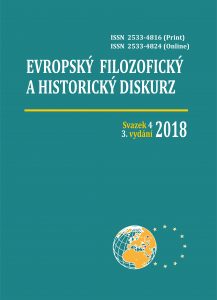Volodymyr Polyakov, PhD in Philosophy
Lesya Ukrainka Volyn National University, Ukraine
How to cite: Polyakov, V. (2023). The Symphonism of Nietzsche’s work “Thus Spoke Zarathustra…” (to the 180th Anniversary of the Birth of Friedrich Nietzsche and to the 140th Anniversary from the Time the Work was Written) [Symfonizm tvoru Nitsshe «Tak movyv Zaratustra…» (do 180-littia z dnia narodzhennia Fridrikha Nitsshe i do 140-littia z chasu napysannia tvoru)]. European Philosophical and Historical Discourse, 9, 4, 13-19. https://doi.org/10.46340/ephd.2023.9.4.3
Abstract
The idea of realizing the synthesis of arts and sciences, which was developed in the spiritual life of Germany at the beginning of the 19th century by Schiller, and after him by Schelling and Hegel, later found its continuation in the work of Friedrich Nietzsche. Already his first work “The Birth of Tragedy: out of Spirit of Music” demonstrates how closely science, art, and philosophy were intertwined in his soul because he connected the origin of ancient tragedy with music. But his other book, which he called “Thus Spoke Zarathustra, a Book for All and None”, is an attempt to consciously apply the symphonic form to the writing of a philosophical drama. The presence of a special genre, synoptic literature, is substantiated. The article shows that superimposing the sonata-symphonic cycle in the first part of the book about Zarathustra revealed its internal composition. Thus, the exposition demonstrates the main and secondary themes, namely the doctrine of the superhuman and the death of man. It is shown that a superhuman is not a superman, but only a harmonious and perfect person with a high spiritual purpose. In the development as the central section of the sonata form, Friedrich Nietzsche substantiates the need for anthropological teaching, presents a critique of current doctrines presented here as well as develops foundations of the doctrine of a perfect man ideal (superhuman) and ways to overcome the imperfection of a real man. The recapitulation declares Nietzsche’s philosophical testament regarding the need for self-knowledge of man to transform him into a spiritual guide. Explanations and arguments regarding Nietzsche’s motives for using allegories and the use of musical form are provided.
Keywords: Nietzsche, synthesis, dialectics, philosophy, science, art, man, superhuman, symphonism, sonata-symphonic cycle, symphonic-philosophical drama, synoptic literature, allegory.
References
- Vindelband, V. Vvedenskij, A. (ed.) (2000). Istorija Novoj filosofii v ee svjazi s obshhej kulturoj i otdelnymi naukami: v 2-h tomakh [The history of the New Philosophy in its connection with the general culture and individual sciences: in 2 volumes]. Ot Kanta do Nicshe [From Kant to Nicshe)]. Moscow: TERRA-Knizhnyj klub; KANON-press-C, 2. [in Russian].
- Halévy, D. Ilinskij, A.N. (1991). Zhyzn Fridricha Nicshe [Life of Friedrich Nietzsche]. Riga: Spriditis. [in Russian].
- Gegel, G.V.F. (1971). Estetika: v 4-h tomakh. [Aesthetics: in 4 volumes] Moscow: Iskusstvo, 3. [in Russian].
- Kanudo, R. (1988). Manifest semi iskusstv. Iz istorij frantsuzskoj kinomysli [Manifesto of the Seven Arts.
From the stories of French film thought]. Moscow: Iskusstvo. [in Russian]. - Koplston, F. Vasiljev, V.V. (2004.) Ot Fikhte do Nicshe [From Fichte to Nietzsche]. Moscow: Respublika. [in Russian].
- Levik, B.V. (1982). Muzykalnaja literatura zarubezhnykh stran [Musical literature of foreign countries].
Moscow: Muzyka, IV. [in Russian]. - Levchuk, L.T. Panchenko, V.I. Onishchenko, O.I. and other (2010). Estetyka [Aesthetics]. Kyiv: Tsentr uchbovoi literatury. [in Ukrainian].
- Lykhomanova, N. (2001). Muzychna drama. Leksykon zahalnoho ta porivnialnoho literaturoznavstva
[Musical drama. Lexicon of comprehensive and comparative literature]. Chernivtsi: Zoloti lytavry. [in Ukrainian]. - Losev, A.F. (1995). Slovar antichnoj filosofii [Dictionary of Ancient Philosophy]. Moscow: Peace of mind; AO Akron. [in Russian].
- Liutyi, T. (2016). Nitsshe. Samoperevershennia [Nietzsche. Self-improvement]. Kyiv: Tempora. [in Ukrainian].
- Nicshe, F. (1990). Rozhdenie tragedii, ili ellinstvo i pessimizm. Sochinenija: v 2-h tomakh [The Birth of Tragedy, or Hellenism and Pessimis. Essays: in 2 volumes]. Moscow: Mysl. [in Russian].
- Nicshe, F. (1990). Tak govoril Zaratustra. Kniga dlja vsekh s ni dlja kogo. Sochinenija: v 2-h tomakh
[Thus spoke Zarathustra. A book for everyone and no one. Essays: in 2 volumes]. Moscow: Mysl, 2. [in Russian]. - Nitsshe, F. (2023). Tak movyv Zaratustra. Knyzhka dlia vsikh i ni dlia koho [Thus spoke Zarathustra.
A book for everyone and no one]. Kharkiv: Folio. [in Ukrainian]. - Platon (1995). Fedr. Dialohy. [Phaedrus. Dialogues]. Kyiv: Osnova. [in Ukrainian].
- Platon (1993). Sofist. Sobranie sochinenij: v 4-h tomakh [Sophist. Collected works: in 4 volumes].
Moscow: Mysl, 2. [in Russian]. - Rykhlo, P. (2001). Alehoriia. Leksykon zahalnoho ta porivnialnoho literaturoznavstva [Allegory Lexicon of general and comparative literature]. Chernivtsi: Golden Drums [in Ukrainian].
- Khamitov, N. Harmash, L. Krylova, S. (2006). Istoriia filosofii. Problema liudyny ta yii mezh [History of Philosophy. The problem of man and his limits]. Kyiv: KNT. [in Ukrainian].
- Naimi, M. (2002). Knyha Mirdada [Mirdad’s book] <https://stylus.ua/uk/mihail-naimi-kniga-mirdada-neobyknovennaya-istoriya-monastyrya-kotoryy-kogda-to-nazyvalsya-kovchegom-p661127c12506.html> (2023, October, 10). [in Ukrainian].
